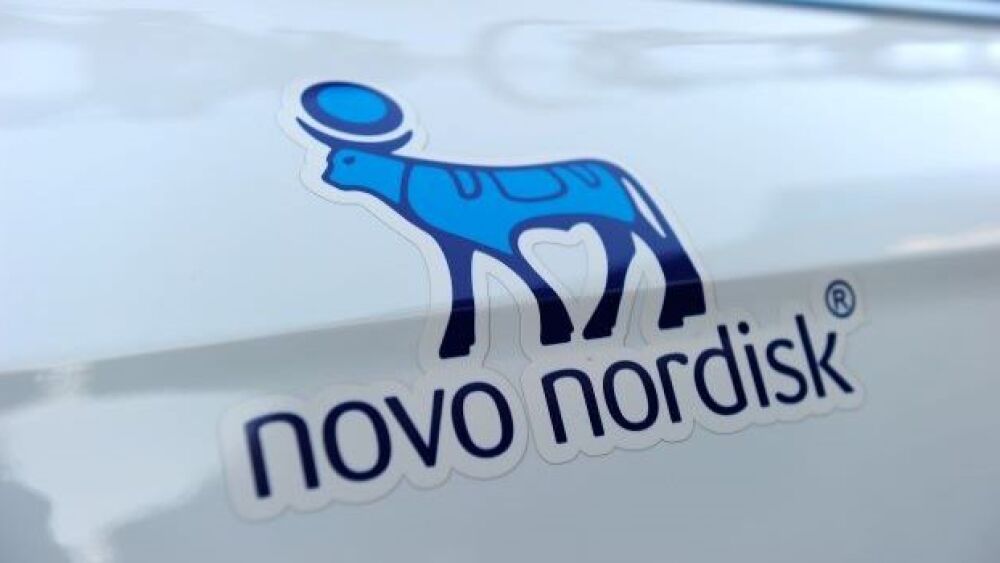The results showed that insulin icodec is as non-inferior to Sanofi’s insulin glargine, Lantus, potentially bringing another major competitor into the insulin space.
Icodec cleared the phase III trials. (Tim de Waele/Corbis via Getty Images)
Denmark-based Novo Nordisk announced results from two Phase IIIa comparative trials evaluating its once-weekly insulin icodec. The results showed that insulin icodec is as non-inferior to Sanofi’s insulin glargine, Lantus, potentially bringing another major competitor into the insulin space.
Novo Nordisk’s ONWARDS clinical program consists of six global clinical trials for insulin icodec, and the company announced headline results from ONWARDS 1 and ONWARDS 6. The first is a Phase IIIa, 78-week efficacy and safety treat-to-target trial investigating once-weekly insulin icodec compared to insulin glargine U100 (insulin glargine), both in combination with non-insulin anti-diabetic treatment, in 984 insulin-naïve people with type 2 diabetes.
The trial’s endpoint was to demonstrate non-inferiority in reducing HbA1c, hemoglobin that indicates blood sugar levels, with insulin icodec when compared to insulin glargine.
The ONWARDS 1 trial met its endpoint and did achieve a superior reduction in estimated HbA1c levels. Insulin icodec also had superior time in range, or amount of time a patient spent in the target blood sugar range. Insulin icodec was well-tolerated among participants and did not show any significant differences in causing hypoglycemic events when compared to insulin glargine.
“The results of the main phase of ONWARDS 1 confirm the strong results seen in ONWARDS 2 and strengthen the profile of once-weekly insulin icodec which has the potential to become the ideal insulin for people with type 2 diabetes initiating insulin treatment,” Martin Holst Lange, executive vice president for Development at Novo Nordisk said.
The ONWARDS 6 trial also tested insulin icodec, but compared it to Novo’s own Tresiba (insulin dugludec), both in combination with insulin injections at each meal. ONWARDS 6 met its endpoint, showing that icodec helped reduce HbA1c by -0.47% compared to -0.51% for insulin degludec.
However, the trial also showed that patients taking insulin icodec were at a significantly higher risk for severe hypoglycemia events than patients on insulin degludec, with 19.93 events per patient per year exposed to once-weekly insulin icodec and 10.37 events per patient per year exposed to insulin degludec. Otherwise, weekly insulin icodec had a well-tolerated profile.
If approved, insulin icodec could be a major competitor for Sanofi’s Lantus, which was greenlit by the U.S. Food and Drug Administration in 2000. Sanofi’s insulin glargine injection, Toujeo, was approved by the FDA in 2015. Lantus earned Sanofi approximately €671 million in Q1 2022 alone, according to the company’s Q1 2022 financial report.
In addition to insulin icodec, other companies are eating away at Sanofi’s profits. The US insulin market opportunity is expected to soar to over $10 billion by 2026 and the US insulin biosimilar market itself is projected to hit $1 billion. Other companies vying for their piece of the market are Viatris and Biocon Biologics, which launched interchangeable biosimilars SEMGLEE® (insulin glargine-yfgn) injection, a branded product, and Insulin Glargine (insulin glargine-yfgn) injection in November 2021. Both products are interchangeable with Lantus.
On Wednesday, Lannett provided an update on its pivotal clinical trial of biosimilar insulin glargine. The study is going well and no serious adverse events have been reported. The company expects top-line results to be available by the end of the year, and if the results are positive, Lannett plans to file for a Biologics License Application in early 2023.





